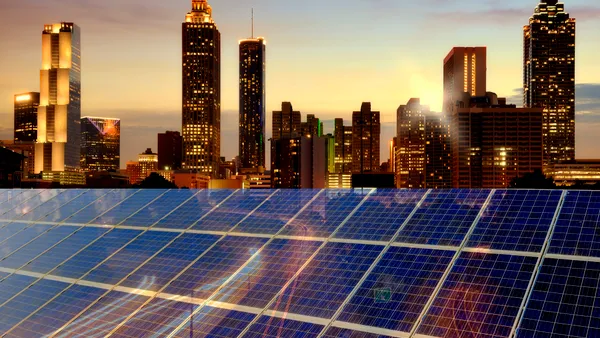Dive Brief:
- The city council of Madison, Wisconsin has adopted an energy plan to slash carbon emissions 80% by 2050, cut overall energy consumption 50% by 2030 and source 25% of electricity, heating and transportation from clean energy sources by 2025, Midwest Energy News reports.
- Under the plan, a working group will be convened to review the city's current climate change plan, and the city will establish a city-wide Property Assessed Clean Energy (PACE) program and create an inventory of all city-owned properties suitable for rooftop solar arrays.
- Part of the plan calls for cooperation with Madison Gas & Electric (MGE) to promote electric vehicles, develop a utility-scale solar farm, invest in smart meters and smart inverters, and develop rate designs aimed at curtailing energy during high demand periods.
Dive Insight:
Madison follows on the heels of other cities like Denver, Colorado in establishing ambitious plans to tackle climate change, including slashing greenhouse gas emissions and using more renewable energy.
In fact, Madison's plan is very similar to Denver's: Both aim to cut greenhouse gas emissions 80% by 2050, encourage alternative methods of transportation and grow renewable energy.
“What they’re doing is a series of small concrete steps, moving forward on a number of fronts,” Mitch Brey, campaign organizer of the group RePower Madison, told Midwest Energy News. “There is always more that can be done and I’m hoping the city will not stop after they’ve passed this and implemented this. It’s a start, and it’s clearly a clean energy victory and a victory for everyone in Madison.”
In particular, Brey wants the collaborative push with MGE to result in a decrease in fixed charges. For the past two years, Wisconsin utilities have proposed fixed charge increase to address what they see as distributed solar users’ reduced contribution to maintain the grid and the shifting of fixed costs onto other consumers. MGE promised not to increase fixed charges again this year, the news outlet reports, after backlash from previous increases.














